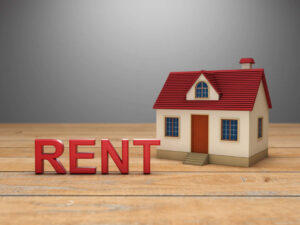
Home renovation, while an exciting prospect, is a major undertaking that requires careful planning and considerable investment. Renovation projects can range from simple cosmetic updates to extensive structural changes, each with its own set of costs. According to HomeAdvisor’s 2020 report, homeowners typically spend between $18,407 and $75,014 on home renovations, highlighting the substantial financial commitment involved. Renovation not only enhances your living space and personal enjoyment but can also increase the market value of your property, making it a worthwhile investment. The key to a successful renovation lies in securing the necessary funding. This guide aims to explore proven techniques for attaining the financing you need to cover your home renovation costs.
Personal Loans
Personal loans are unsecured loans that are primarily based on your creditworthiness. They are typically used for smaller renovation projects due to their relatively higher interest rates and shorter repayment terms. Now, whether you click here or you take a traditional approach, personal loans do have their advantages. They are easy to apply for and have quick approval times, making them ideal for urgent renovation needs. Moreover, you can use these funds as you see fit without any restrictions on the type of renovations you can undertake. Of course, the downside is that these loans come with interest rates and fees that can add up to a considerable amount over time. Therefore, it is essential to shop around for the best terms and ensure that you have a solid repayment plan in place before taking out a personal loan for your home renovation project.
Savings
This is the most straightforward and cost-effective method as it eliminates the need for interest payments and loan fees. However, it requires substantial foresight and disciplined saving habits. Saving up for your renovation project may take longer, but it allows you to avoid debt and retain full ownership of your property. It is advisable to set aside a certain amount each month towards your renovation goals. Consider setting specific savings targets for different stages of the renovation process, such as demolition, structural changes, and finishing touches. This will help you stay on track and give you a better idea of how much you need to save. Additionally, you can explore high-yield savings accounts or investment options that offer better returns on your money over time.
Home Equity Loans
These are loans that use your home as collateral. They offer relatively low-interest rates and are a good option if you have significant home equity and a good credit score. Home equity loans provide a lump sum of money that can be used to cover your renovation costs. However, as with any loan using collateral, there is the risk of losing your home if you default on payments. Therefore, it is crucial to have a solid repayment plan in place and make sure you can afford the monthly payments before taking out a home equity loan. Mortgage lenders typically offer home equity loans, so it is important to shop around and compare rates and terms before making a decision.

Home Equity Line of Credit (HELOC)
Similar to a home equity loan, a HELOC allows you to borrow up to a certain amount, as needed, using your home as collateral. However, unlike a home equity loan, a HELOC functions more like a credit card where you only pay interest on what you borrow. This makes it a more flexible option if you have ongoing renovation costs and are not sure of the exact amount needed. HELOCs also typically come with lower interest rates than credit cards, making them an attractive financing option. However, as with any loan secured by collateral, there is always the risk of losing your home if you cannot make payments.
Credit Cards
If your renovation project is minor, a credit card could be a viable option. Some credit cards offer 0% interest for an introductory period, which could be beneficial if you can pay off the balance within that timeframe. However, keep in mind that interest rates on credit cards can be high if you do not pay off the balance quickly. Additionally, using a credit card for a major renovation project may also affect your credit score and increase your debt-to-income ratio, potentially impacting future loan approvals. For these reasons, it is advisable to use credit cards for smaller renovation projects only if you are confident in your ability to pay off the balance within a short period.
In retrospect, securing financing for your home renovation project requires careful consideration and planning. Each option has its own set of pros and cons, so it is important to evaluate your financial situation and choose the option that best suits your needs. Additionally, it is always advisable to consult a financial advisor before making any significant financial decisions. With proper funding in place, you can embark on your home renovation journey with confidence and turn your dream space into a reality. So, start exploring your options today and make your home renovation dreams a reality! Remember, the key to securing funding for any project lies in responsible financial management, so make sure to create a solid repayment plan and stick to it.




